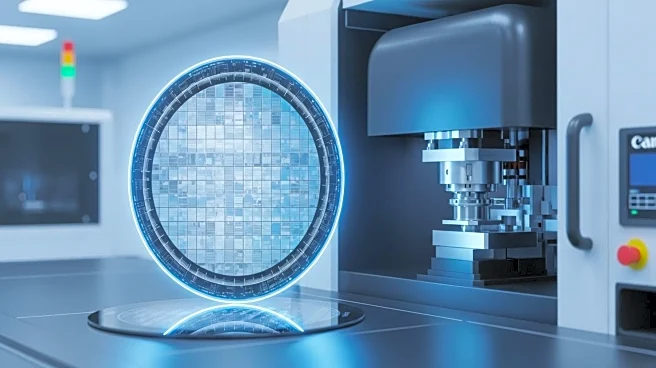What's Happening?
Intel and TSMC have reportedly reached a tentative agreement to launch a joint chipmaking venture. This collaboration would involve Intel's chipmaking facilities, with TSMC holding a 20% stake in the new venture. Both companies have declined to comment or confirm the details of the agreement. This development is part of a broader trend in the semiconductor industry, where companies are seeking strategic partnerships to enhance their manufacturing capabilities and address global supply chain challenges. The potential joint venture reflects the ongoing efforts by major semiconductor firms to adapt to the evolving market dynamics and geopolitical tensions affecting the industry.
Why It's Important?
The alleged agreement between Intel and TSMC is significant as it highlights the strategic moves within the semiconductor industry to bolster manufacturing capabilities amid global supply chain disruptions. Such partnerships can potentially lead to increased production efficiency and innovation, benefiting the U.S. semiconductor market. The collaboration could also impact the competitive landscape, as companies seek to leverage each other's strengths to maintain a competitive edge. Additionally, this move may influence U.S. economic policy and trade relations, particularly in light of ongoing tensions with China over technology exports and intellectual property rights.
What's Next?
If the joint venture between Intel and TSMC materializes, it could lead to further consolidation in the semiconductor industry, with more companies seeking similar partnerships to enhance their production capabilities. The agreement may also prompt regulatory scrutiny, as governments assess the implications of such collaborations on national security and technological sovereignty. Stakeholders, including policymakers and industry leaders, will likely monitor the situation closely to understand its impact on the global semiconductor supply chain and U.S. technological competitiveness.
Beyond the Headlines
The potential joint venture between Intel and TSMC could have deeper implications for the semiconductor industry, including shifts in global manufacturing strategies and increased focus on innovation. It may also raise ethical and legal questions regarding intellectual property sharing and cross-border collaborations. As companies navigate these complexities, the industry could see long-term changes in how semiconductor manufacturing is approached, with an emphasis on strategic alliances and technological advancements.











